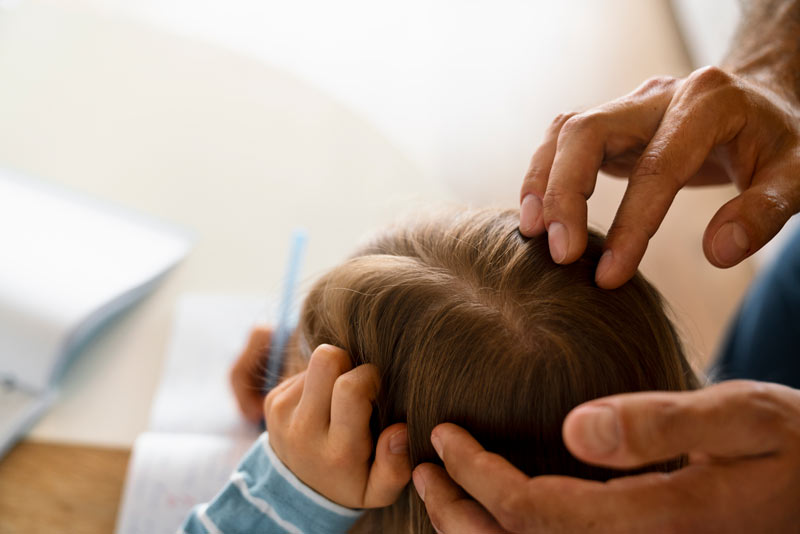When does a child’s distress go beyond normal ups and downs and become a mental health crisis? Sudden mood swings, withdrawal, or intense emotional reactions can be easy to overlook, but they might signal something more serious. How can parents and caregivers distinguish between a rough patch and a true crisis? Recognizing the warning signs early can make all the difference. Let’s explore what to watch for.
Access mental health support for children today!

What Defines a Mental Health Crisis in a Child?
A mental health crisis occurs when a child feels overwhelmed, stressed, or unable to manage emotions without help. Each child may react differently, and cultural context influences how emotions are expressed. Some crises involve intense distress, while others may manifest as violent behavior or withdrawal.
Signs of a Mental Health Crisis: Recognizing warning signs can help identify when a child is experiencing a mental health crisis. Common symptoms include:
- Persistent sadness lasting more than two weeks
- Avoiding friends or family
- Extreme mood swings, irritability, or outbursts
- Violent or aggressive behavior
- Lack of motivation for daily activities
- Sleep issues, such as insomnia or excessive sleeping
- Use of substances like nicotine or alcohol
If these signs persist or worsen, seeking support for the child and family is essential.
A crisis is defined as an event where there is an imminent risk of self-harm or harm to others. “Imminent” means the situation could escalate immediately or in the near future. It may also be characterized by behaviors that caregivers cannot manage without external help.
Signs That Indicate a Mental Health Crisis
Distinguishing a crisis from normal behavior changes can be challenging. When these shifts are persistent or extreme, they may indicate a serious issue. Early recognition allows for timely support and professional intervention when necessary.
A child in crisis may show emotional, behavioral, and physical symptoms, such as:
- Persistent sadness beyond two weeks
- Sudden and unusual behavioral changes
- Social withdrawal
- Sleep or appetite disturbances
- Suicidal thoughts or statements
- Difficulty concentrating
- Episodes of irritability, anger, or unexplained sadness
- Struggles with daily tasks and responsibilities
- Substance use
- Aggressive behavior
- Unexplained physical symptoms like headaches or stomach aches
- Frequent school absences or loss of interest in learning
If a child exhibits multiple signs, immediate action should be taken to determine if they are experiencing a crisis.
While behavioral changes can be part of growth, identifying when they signal deeper distress is essential. Early intervention and access to professional support can significantly impact a child’s long-term well-being.
Crisis Management Strategies for Parents and Caregivers
Handling a mental health crisis in a child requires patience, effective strategies, and a strong support system. Coping techniques can reduce emotional strain and build resilience within the family.
Parents and caregivers may feel overwhelmed when facing a child’s crisis. Strategies to manage these moments include:
- Seeking help when needed: Consulting a mental health professional can provide guidance.
- Building a support system: Family, friends, and community support can lighten the emotional load.
- Prioritizing self-care: Caregivers need to maintain their own mental health to support the child effectively.
- Encouraging relaxation techniques: Deep breathing, meditation, or recreational activities can reduce stress.
- Validating emotions: Acknowledging feelings helps prevent emotional exhaustion.
- Considering professional intervention: Therapy and counseling can equip families with coping tools.
Unexpected crises can disrupt household stability. Strategies to adapt include:
- Reframing the situation: Focusing on manageable aspects instead of what is out of control.
- Avoiding impulsive reactions: Taking time to process and respond thoughtfully.
- Exploring community resources: Local support groups and professionals can provide assistance.
Managing a child’s mental health crisis is challenging, but a strong support system makes a difference. Open communication, seeking help, and applying effective strategies contribute to recovery and emotional stability.
The Importance of Early Intervention During a Crisis
Taking action early minimizes crisis impact and equips children with tools to manage emotional challenges and develop essential skills.
Early intervention offers several benefits, including:
- Improved social and emotional skills: Helps children express emotions and build healthy relationships.
- Increased self-confidence: Support and strategies help children feel more secure.
- Reduced frustration: Addressing difficulties early prevents problematic behaviors.
- Better academic outcomes: Strengthens focus and learning abilities.
- Stronger family relationships: Encourages caregiver involvement in the child’s well-being.
A core aspect of early intervention is family involvement. Parents and caregivers play a key role by:
- Gaining confidence in caregiving: Learning tools to support their child effectively.
- Reducing uncertainty: A clear plan eases concerns about the child’s development.
- Aligning with family values: Strategies adapt to family needs and preferences.
- Creating a stable environment: Familiar settings help children practice new skills.
Early intervention benefits both the child and the family, laying the foundation for future success and emotional resilience.
Long-Term Support for Children After a Mental Health Crisis
Ongoing support helps children recover, strengthen emotional well-being, and prevent relapse. Therapy aids in processing trauma, developing coping skills, and restoring a sense of security.
Parental and caregiver involvement fosters a stable environment, reinforcing recovery. Gradually reintegrating recreational activities encourages children to rebuild routines and engage socially, promoting emotional health.
Various resources can aid this stage. Evaluating a child’s mental health needs ensures a personalized intervention plan. Staying proactive about emotional well-being and maintaining communication with teachers, doctors, and specialists helps build a solid support network, facilitating a lasting recovery.
Sources:
- Benton, T. D., Boyd, R. C., & Njoroge, W. F. (2021). Addressing the global crisis of child and adolescent mental health. JAMA Pediatrics, 175(11), 1108-1110.
- Albee, G. W. (1960). The manpower crisis in mental health. American Journal of Public Health and the Nation’s Health, 50(12), 1895-1900.